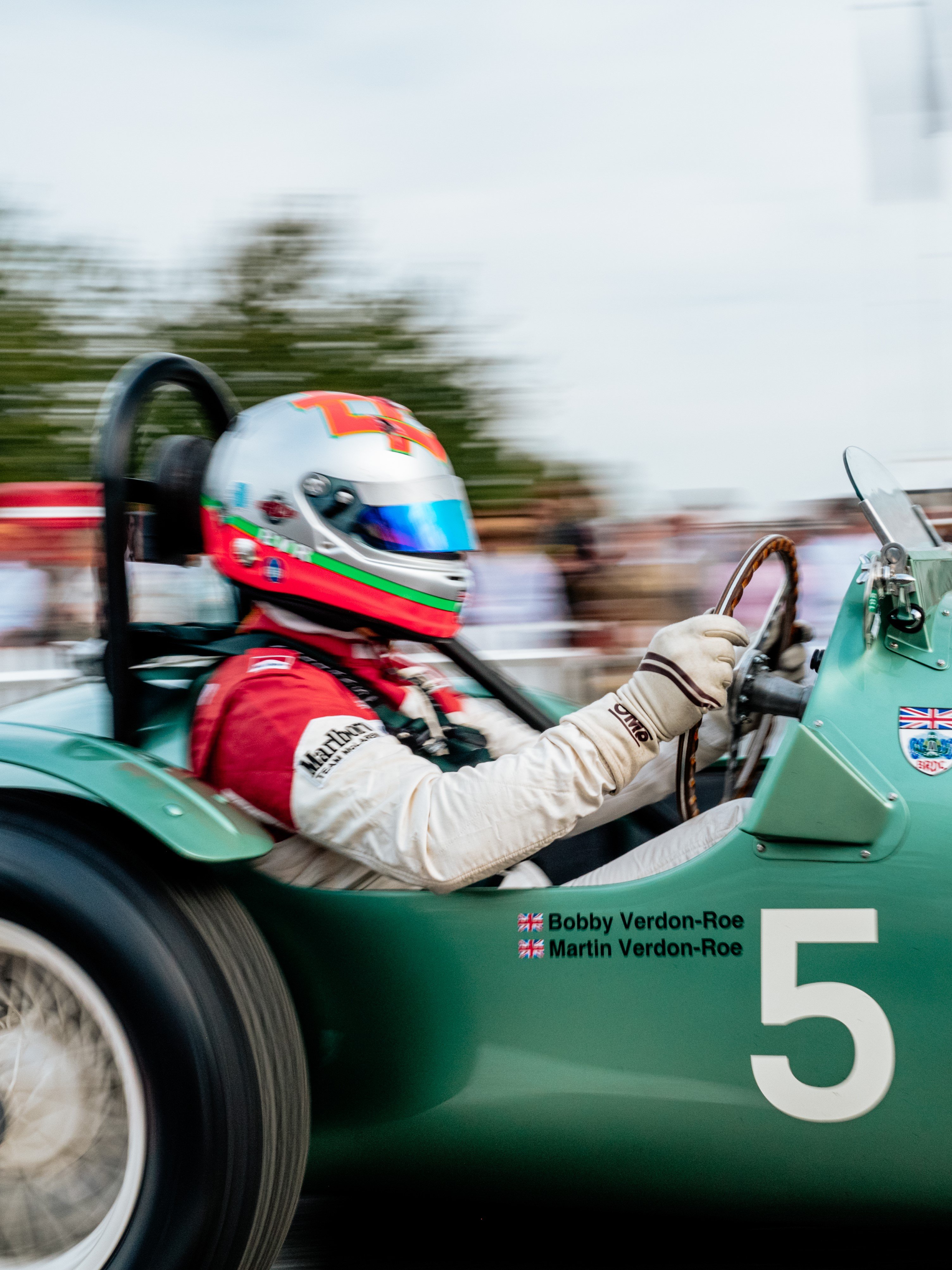Monaco now and then: Exploring 90 years of history at the Historic
Monaco has been home to arguably the world’s most famous and certainly the world’s most glamorous Grand Prix race for near-on a century. First held in 1929, the Monaco Grand Prix has seen the streets of the Cote d’Azure’s own principality, and the cars that race on them, change immeasurably over the decades.

It’s a venue that spans near enough the totality of motorsport’s history at large, with surfaces that were once not even paved now hosting the hum of all-electric sci-fi-sounding Formula E single-seaters once a year. So we thought it would be interesting, with the seven-decade span of machinery that we have here at the 2024 Monaco Historic Grand Prix, to do a bit of a now and then of the famous circuit.
So what we’ve done is take shots of a few choice F1 and Grand Prix cars racing here this weekend and using the extensive Motorsport Images library, place them alongside shots of them racing here in period. It’s a thought-provoking retrospective exercise and, hopefully, one that gives us a new perspective on this circuit’s near-hundred-year history of racing.
Our first pair of shots are separated by some 90 years, with today’s depicting the Alfa Romeo 8C Monza driven by owner Burkard Fritz. The car actually hails from the early 1930s, being built in 1932 and entered by Ferrari at the 1933 Monaco Grand Prix.
We see the start of the race in a period image here, where Tazio Nuvolari is getting a flying start in the Alfa (though not as good of a start as fellow Alfa jockey Baconin Borzacchini) some 91 years ago.
Also pictured is the Maserati 250F today raced by Jeffrey O’Neill, though when the cars raced around Monaco in 1957, it was the likes of Hans Herrmann, André Simon, Luigi Piotti, Carlos Menditeguy and of course, Juan Manuel Fangio plotting the monster Masers. Pictured here is Harry Schell – who finished eighth behind the winner Fangio – whose car we believe O’Neill is driving this weekend.
We can see how far photographic technology and indeed the race had come in the 24 years since that 1933 Monaco Grand Prix image…
Next, we leap ahead to 1969 and the Lotus 49B, where we see Graham Hill leading a Matra around that year’s Monaco Grand Prix. Cut to 2024, some 55 years later and F1 design genius Adrian Newey is hoofing the very same car around the very same streets, sharing a grid with a couple of Matras, which are admittedly slightly newer than the MS80 pictured. At the time the Hill image was taken, Newey was 10 years old and likely already owned the scale model of that very car, which got him interested in racing car design. Fifty-five years on, he owns the car and races it as a busman’s holiday, when he’s not adding F1 cars to his championship-winning design tally.
Leaping ahead just five years to 1974 and we see Niki Lauda in his Ferrari 312B3, on the run down through the famous hairpin. Lauda had stomped the screaming 12-cylinder machine to pole position but retired in the race itself. The very same car is pictured here this weekend, with Andrea Burani at the wheel.
In that five-year span we can see the most important developing art in F1 is that of aerodynamics and downforce, with the differences between the cars near-immeasurable. That Lotus 49 and Ferrari 312B3 are early chapters in F1’s ongoing aerodynamic explorations, which of course remains a winner-defining dark art today.
Speaking of how today’s F1 cars relate to some of the cars racing here at the 2024 Monaco historic, we leap further forward into the next decade, the 1980s, and the ground effect era. A design method of generating downforce, ground effect only returned to F1 after being banned later in the 1980s, in 2022 and the fundamental principles are the same.
These 1980s monsters, like the cars today, run venturi tunnels down the underside of the car on either side of the cockpit, to funnel air underneath the car and accelerate it out the back, sucking the car down. It’s a method of downforce generation that’s as rich in opportunity as it is difficult to optimise, as even today’s F1 teams have realised over the last couple of years.
Round the streets of Monaco however, in 2024 as in 1980, the Williams FW07B we see here and indeed, the other cars against which it’s racing, isn’t relying too heavily on its ground effect aero. Instead, Monaco is all about mechanical grip.
To its driver and owner, Zak Brown, the problem of optimising a ground effect car for different circuits should feel as familiar during these jolly weekends as it does when at work, given he’s the CEO of McLaren and has had a front-row seat to every weekend’s F1 action since he took the reigns in 2018. Brown famously only buys cars with a winning history and FW07B/07 more than fits the bill, being the car Alan Jones scored two wins – in Austria and Germany – during his championship-winning 1980 season.
In the more recent period images, the Monaco circuit obviously looks much more familiar. Unsurprising, given the 1980 Monaco Grand Prix is four years closer to us now than it is chronologically, to the 1933 Monaco Grand Prix we opened with.
Jumping ahead to 1990, we have the McLaren MP4/5B, driven this weekend by Bruno Senna, in celebration of the incredible achievements of his uncle, three-time world champion Ayrton Senna. We see Ayrton in the period here battling around Monaco in the McLaren against Alain Prost in the Ferrari 641/2. He won in the car, like he so often did in the Principality, fortifying his reputation as the ‘Master of Monaco’.
Period images courtesy of Motorsport Images, current photography by Pete Summers
Monaco Historic
Monaco Historic 2024
Formula 1
Monaco
Race
Historic















